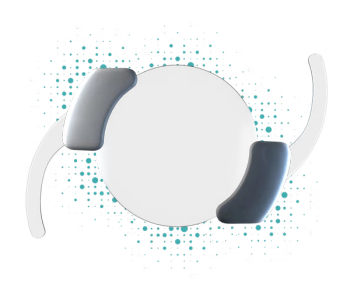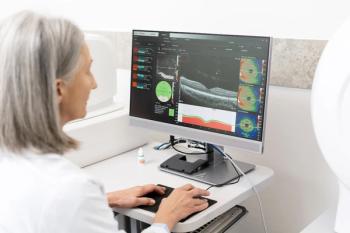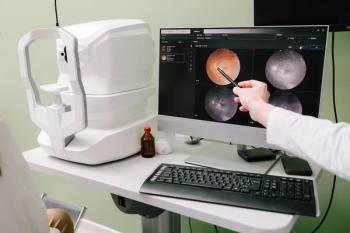
FDA approves STAAR Surgical’s EVO Visian ICL for myopia
US commercialization of EVO will begin immediately in select cities across the country.
STAAR Surgical announced Monday that the FDA has approved its EVO/EVO+ Visian Implantable Collamer Lens (ICL) for the correction of myopia and myopia with astigmatism.
According to the company, EVO—a biocompatible implantable lens— is designed to be used in phakic eye treatment for patients ages 21 to 45 for the following:
- correction/reduction of myopia in patients with spherical equivalent ranging from -3.0 D to -20.0 D at the spectacle plane;
- correction/reduction of myopic astigmatism in patients with spherical equivalent ranging from -3.0 D to -20.0 D with cylinder of 1.0 D to 4.0 D at the spectacle plane;
- with an anterior chamber depth (ACD) of 3.00 mm or greater, when measured from the corneal endothelium to the anterior surface of the crystalline lens;
- a stable refractive history (within 0.5 D for 1 year prior to implantation)
EVOs are implanted within the posterior chamber of the eye, directly behind the iris and in front of the natural crystalline lens,
EVO works as a lens-based alternative for the correction and reduction of refractive error in glasses and/or contact lens wearers for distance vision correction.
Over 1 million EVO lenses have been implanted by doctors outside of the US, and a survey found that 99.4% of EVO patients stated they would undergo the procedure again, according to STAAR Surgical President/CEO Caren Mason.
“Sales of EVO lenses outside of the US increased 51% in 2021 and have more than doubled since 2018, which speaks to the increasing choice by patients and our surgeon partners for EVO as a premium an primary solution for vision correction,” Mason said in a release.
Mason further stated that surgeons will be trained and certified for EVO, and begin implanting the lenses in the near future in select cities across the country.
“Commercialization of EVO will begin immediately and be supported by a nationwide advertising, marketing, and public relations campaign,” he added.
Scott D. Barnes, MD, chief medical officer at STAAR Surgical, stated in a release that, unlike LASIK, the EVO lens can be added to a patient’s eye through a fairly quick surgical procedure involving no removal of corneal tissue. Additionally, the lens can be removed by a physician, if desired.
“Results from our recent U.S. clinical trial are consistent with the more than one million EVO lenses that have already been implanted around the world,” he stated.
Newsletter
Want more insights like this? Subscribe to Optometry Times and get clinical pearls and practice tips delivered straight to your inbox.




























